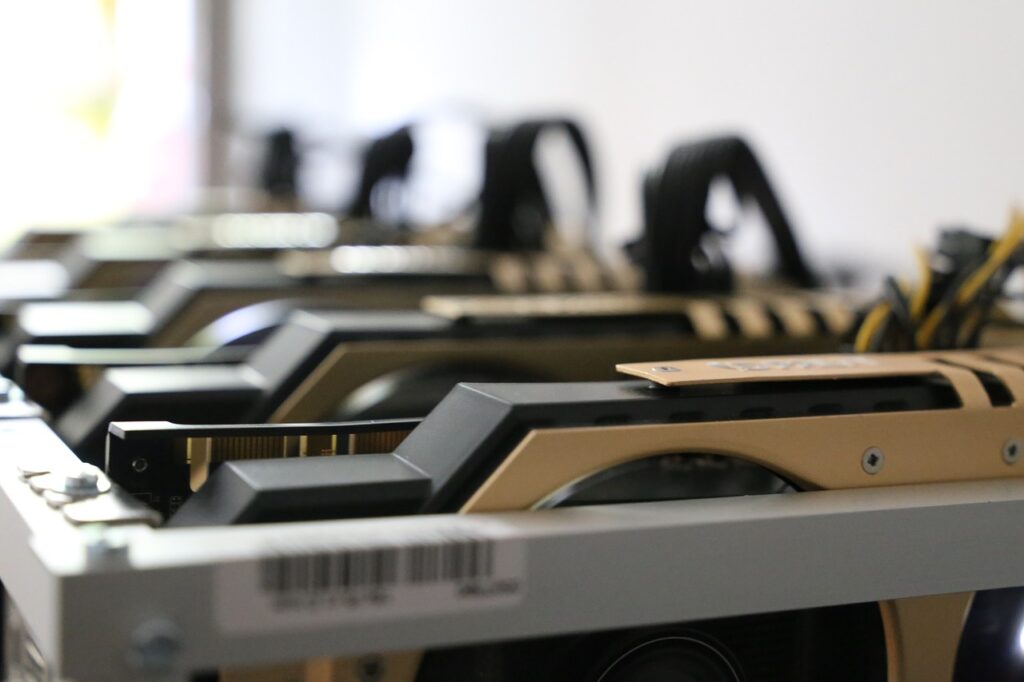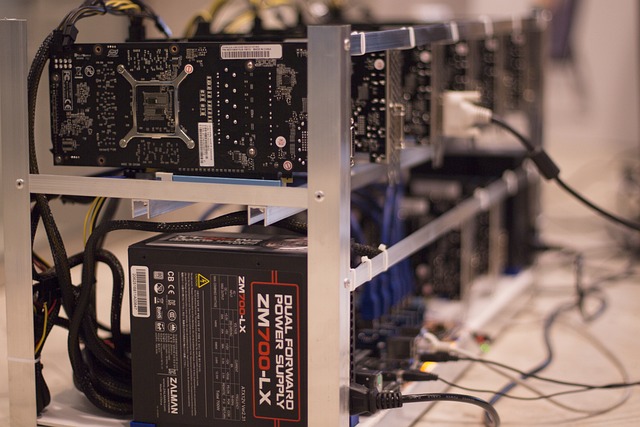DeFi Platforms Demystified: An In-Depth Analysis
DeFi Platforms Demystified: An In-Depth Analysis

What Are DeFi Platforms and How Do They Work?
DeFi, short for decentralized finance, refers to a new paradigm in the world of finance where traditional financial services are being built on blockchain technology. DeFi platforms are essentially a financial ecosystem that operates without intermediaries, such as banks or brokers, by leveraging smart contracts on blockchain networks. These platforms allow individuals to access a range of financial services, including lending, borrowing, investing, and trading, without having to rely on centralized institutions.
So, how do DeFi platforms work? Well, at the core of these platforms are smart contracts, which are self-executing contracts with the terms of agreements encoded within them. These contracts are deployed on blockchain networks, such as Ethereum, and automatically execute transactions once the pre-set conditions are met. Since the execution of these transactions is managed by the code itself, there is no need for intermediaries, making the process faster, more transparent, and cost-efficient. Users can interact with these platforms through decentralized applications (dApps) that are built on top of the blockchain networks, providing a user-friendly interface for seamless financial transactions.
The Benefits of Using DeFi Platforms for Financial Transactions
DeFi platforms have opened up a world of possibilities when it comes to financial transactions. One of the main benefits is the elimination of intermediaries such as banks or financial institutions. This means that users can directly interact with the platform, allowing for faster and more efficient transactions. Additionally, DeFi platforms offer greater accessibility as they are built on blockchain technology, making them available to anyone with an internet connection. This levels the playing field and gives individuals who may not have had access to traditional financial services the opportunity to participate in the global economy. Furthermore, DeFi platforms often have lower fees compared to traditional financial systems, making them a cost-effective option for users.
Another major advantage of using DeFi platforms for financial transactions is the increased transparency they provide. The use of blockchain technology ensures that all transactions are recorded on a public ledger, which can be accessed and verified by anyone. This transparency not only instills trust in the system, but it also reduces the risk of fraud and manipulation. Moreover, DeFi platforms offer users greater control over their funds. Through the use of smart contracts, users can set their own rules and conditions for transactions, eliminating the need to rely on a centralized authority. This empowers individuals by giving them full autonomy over their financial decisions. Overall, the benefits of using DeFi platforms for financial transactions are numerous, providing users with speed, accessibility, cost-effectiveness, transparency, and control over their funds.
Exploring the Different Types of DeFi Platforms Available
When it comes to exploring the different types of DeFi platforms available, it’s important to understand that the world of decentralized finance offers a wide range of options to cater to diverse needs. One popular type of DeFi platform is decentralized lending platforms. These platforms operate on the principle of peer-to-peer lending, where borrowers and lenders can interact directly without the need for intermediaries like banks. Users can lend out their digital assets and earn interest on their holdings, while borrowers can obtain loans by collateralizing their digital assets.

Another noteworthy type of DeFi platform is decentralized exchanges (DEX). Unlike traditional exchanges that are centralized and require users to entrust their funds to a central authority, DEX operates on blockchain technology. This allows for peer-to-peer trading of digital assets, where users can trade directly from their own wallets. Decentralized exchanges provide users with greater security, privacy, and control over their assets, eliminating the need for intermediaries or lengthy registration processes. Plus, they offer access to a wide range of cryptocurrencies, enabling individuals to engage in trading activities seamlessly.
• Decentralized lending platforms offer peer-to-peer lending, eliminating the need for intermediaries like banks.
• Users can lend out their digital assets and earn interest, while borrowers can obtain loans by collateralizing their assets.
• This type of DeFi platform provides individuals with more control over their finances and an alternative to traditional banking systems.
• Decentralized exchanges (DEX) operate on blockchain technology, allowing for peer-to-peer trading of digital assets.
• Users can trade directly from their own wallets, providing greater security, privacy, and control over their assets.
• DEXs eliminate the need for intermediaries or lengthy registration processes and offer access to a wide range of cryptocurrencies.
Understanding the Risks and Challenges Associated with DeFi Platforms
As with any emerging technology, DeFi platforms come with their fair share of risks and challenges. One of the main concerns is the lack of regulatory oversight.

Another challenge is the high level of technical complexity.

Key Features and Functionalities of Popular DeFi Platforms
Decentralized Finance (DeFi) platforms have gained significant traction in the financial world, offering a range of key features and functionalities that are revolutionizing traditional financial systems. One of the notable features of popular DeFi platforms is their ability to operate without any intermediaries. Unlike traditional financial institutions, which require intermediaries such as banks or brokers to facilitate transactions, DeFi platforms allow users to transact directly with each other on a peer-to-peer basis. This not only eliminates the need for intermediaries but also reduces transaction costs, making financial transactions more accessible and affordable for users.
Another key feature of popular DeFi platforms is the automation of financial processes through the use of smart contracts. Smart contracts are self-executing contracts with the terms of the agreement directly written into code. They automatically enforce the terms of the contract, eliminating the need for intermediaries and reducing the risk of fraud or manipulation. This automation simplifies and streamlines various financial processes, such as lending and borrowing, asset management, and decentralized exchanges. It also ensures transparency and security, as all transactions recorded on the blockchain are immutable and verifiable by anyone. The use of smart contracts in DeFi platforms not only enhances efficiency but also enables users to have greater control over their financial activities.
How DeFi Platforms Are Revolutionizing Traditional Financial Systems
DeFi platforms are revolutionizing traditional financial systems by introducing a new level of accessibility and inclusivity. In the traditional financial world, individuals often encounter barriers such as lengthy approval processes, high fees, and limited access to financial services. However, DeFi platforms are changing this dynamic by leveraging blockchain technology to create open, decentralized systems that are accessible to anyone with an internet connection. This means that individuals from all walks of life, regardless of their geographical location or financial background, can participate in financial transactions and services with ease.
Moreover, DeFi platforms are also eliminating the need for intermediaries, such as banks or other financial institutions. This decentralization allows for quicker, more efficient, and cost-effective transactions. By leveraging smart contracts, which are self-executing agreements that automatically fulfill the terms and conditions written into the code, DeFi platforms are able to eliminate the need for intermediaries to facilitate transactions. This not only speeds up the process but also reduces the risk of human error or manipulation. With the elimination of intermediaries, individuals have more control over their finances and can transact directly with one another, creating a truly peer-to-peer financial system.
A Look into the Security Measures Implemented by DeFi Platforms
Security is a paramount consideration when it comes to DeFi platforms. These platforms need to ensure the safety and protection of user assets and transactions in a decentralized environment. To achieve this, they implement stringent security measures. One such measure is the use of multi-signature wallets, which require multiple parties to authorize a transaction. This helps prevent any single individual from having complete control over funds. Additionally, DeFi platforms often employ encryption techniques to secure sensitive data, such as private keys and user information. By encrypting this data, they make it incredibly difficult for unauthorized individuals to gain access.
DeFi platforms also implement robust smart contract auditing processes. Smart contracts are at the core of DeFi platforms, enabling the execution of transparent and automated transactions. However, their code can be vulnerable to bugs and vulnerabilities. To mitigate this risk, DeFi platforms often subject their smart contracts to extensive auditing by reputable third-party firms. These audits help identify any flaws or weaknesses in the code, ensuring its reliability and security. Regular security audits are crucial, as they allow platforms to address any vulnerabilities promptly and maintain the trust and confidence of users.
The Role of Smart Contracts in DeFi Platforms
Smart contracts play a vital role in DeFi platforms, revolutionizing the way financial transactions are conducted. These self-executing agreements are built on blockchain technology and eliminate the need for intermediaries, ensuring transparency, security, and efficiency. By automating the terms and conditions of a transaction, smart contracts eliminate the risk of fraud and manipulation that is often associated with traditional financial systems.
One of the biggest advantages of smart contracts in DeFi platforms is their ability to enable decentralized lending and borrowing. Through the implementation of programmable rules, individuals can access loans or provide liquidity without the need for a centralized authority. This opens up new opportunities for individuals who may not have access to traditional banking services, allowing them to participate in financial activities that were previously only available to a select few. Additionally, the use of smart contracts ensures that the terms of the loan or borrowing are enforced automatically, minimizing counterparty risk and reducing the need for trust between two parties.
Case Studies: Successful DeFi Platforms and Their Impact on the Market
Decentralized Finance (DeFi) platforms have taken the world by storm, revolutionizing traditional financial systems and empowering users with unparalleled control over their funds. Two successful case studies in this space are Compound and MakerDAO.
Compound, a decentralized lending platform, allows users to borrow and lend various cryptocurrencies with competitive interest rates. By utilizing smart contracts on the Ethereum blockchain, Compound has eliminated the need for intermediaries, making the lending process faster and more efficient. This has had a significant impact on the market, as users can now access credit without the need for a traditional bank. The success of Compound has paved the way for similar DeFi lending platforms, driving innovation and pushing the boundaries of what is possible in the financial sector.
Another notable case study is MakerDAO, a decentralized stablecoin project that introduced DAI, a cryptocurrency pegged to the US dollar. By utilizing collateralized debt positions (CDPs) and smart contracts, MakerDAO ensures price stability and transparency within the ecosystem. Through its governance token, MKR, users have the ability to participate in the decision-making process of the platform. This democratic approach to stablecoin creation has gained traction in the market, proving that decentralized governance can be a viable alternative to centralized control. The impact of MakerDAO’s success can be seen by the growing number of stablecoins and DeFi projects inspired by its model.
The success of both Compound and MakerDAO not only highlights the potential of DeFi platforms but also showcases the market’s appetite for decentralized financial solutions. These case studies serve as strong examples of how DeFi platforms are reshaping the financial landscape, offering increased accessibility, transparency, and financial freedom to users worldwide. With the continued development and adoption of DeFi, it is clear that these platforms have the power to transform the way we interact with money and financial services.
Future Trends and Potential Developments in the DeFi Platform Space
One of the future trends in the DeFi platform space is the rise of cross-chain compatibility. Currently, most DeFi applications are built on a single blockchain, which limits interoperability and potential collaboration between different platforms. However, with the growing demand for seamless transactions between various blockchain networks, many developers and projects are exploring the possibilities of cross-chain DeFi solutions. This would allow users to bridge assets and liquidity across different blockchains, opening up new avenues for decentralized financial services.
Another potential development in the DeFi platform space is the integration of decentralized identity (DID) solutions. As DeFi continues to gain traction, the need for robust and secure identity verification becomes crucial. By incorporating DID protocols, users would have control over their personal information and could maintain their privacy while participating in DeFi activities. This would enhance security and trust within the ecosystem, making DeFi platforms more appealing and reliable for users. Furthermore, DID integration could streamline the onboarding process for new users, eliminating the need for repetitive identification procedures across multiple platforms.
What are DeFi platforms?
DeFi platforms, short for Decentralized Finance platforms, are blockchain-based platforms that provide financial services without the need for intermediaries like banks.
How do DeFi platforms work?
DeFi platforms use smart contracts, which are self-executing contracts with terms written directly into code. These contracts automate financial transactions, eliminating the need for intermediaries and enabling peer-to-peer transactions.
What are the benefits of using DeFi platforms for financial transactions?
DeFi platforms offer several advantages, such as greater accessibility, lower costs, faster transactions, improved privacy, and increased financial inclusivity.
What types of DeFi platforms are available?
There are various types of DeFi platforms, including decentralized exchanges (DEXs), lending platforms, stablecoin platforms, decentralized insurance platforms, and asset management platforms.
What are the risks and challenges associated with DeFi platforms?
Some risks of using DeFi platforms include smart contract vulnerabilities, hacking attacks, regulatory uncertainties, and potential loss of funds due to human error.
What are the key features and functionalities of popular DeFi platforms?
Popular DeFi platforms often offer features like token swapping, yield farming, lending and borrowing, staking, liquidity mining, and decentralized governance.
How are DeFi platforms revolutionizing traditional financial systems?
DeFi platforms are disrupting traditional financial systems by enabling direct peer-to-peer transactions, reducing reliance on intermediaries, and providing access to financial services to the unbanked population.
What security measures are implemented by DeFi platforms?
DeFi platforms employ various security measures, such as audited smart contracts, bug bounty programs, multi-signature wallets, and decentralized governance models to enhance the security of user funds.
What role do smart contracts play in DeFi platforms?
Smart contracts act as the backbone of DeFi platforms, facilitating and automating financial transactions, ensuring transparency, and removing the need for intermediaries.
Can you provide some case studies of successful DeFi platforms and their impact on the market?
Sure! Some notable DeFi platforms include Uniswap, Compound, Aave, MakerDAO, and Synthetix, which have gained significant popularity and have contributed to the growth of the DeFi market.
What future trends and potential developments can we expect in the DeFi platform space?
The future of DeFi platforms looks promising, with potential developments like scalability solutions, interoperability between different protocols, increased regulatory clarity, enhanced user experience, and the emergence of new DeFi use cases.
Todays Featured Product:
Buy, exchange and grow your crypto securely with a Ledger hardware wallet, combined with the Ledger Live app. It’s never been easier to keep your crypto safe and accessible. Buy direct from Ledger.com and get todays Special Offers Here.




